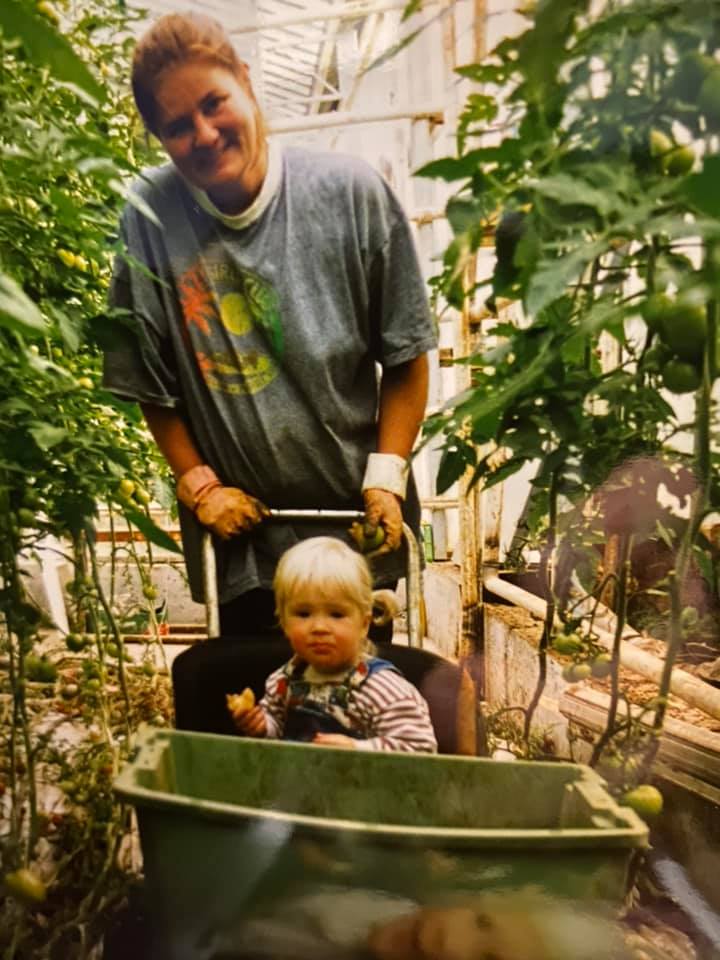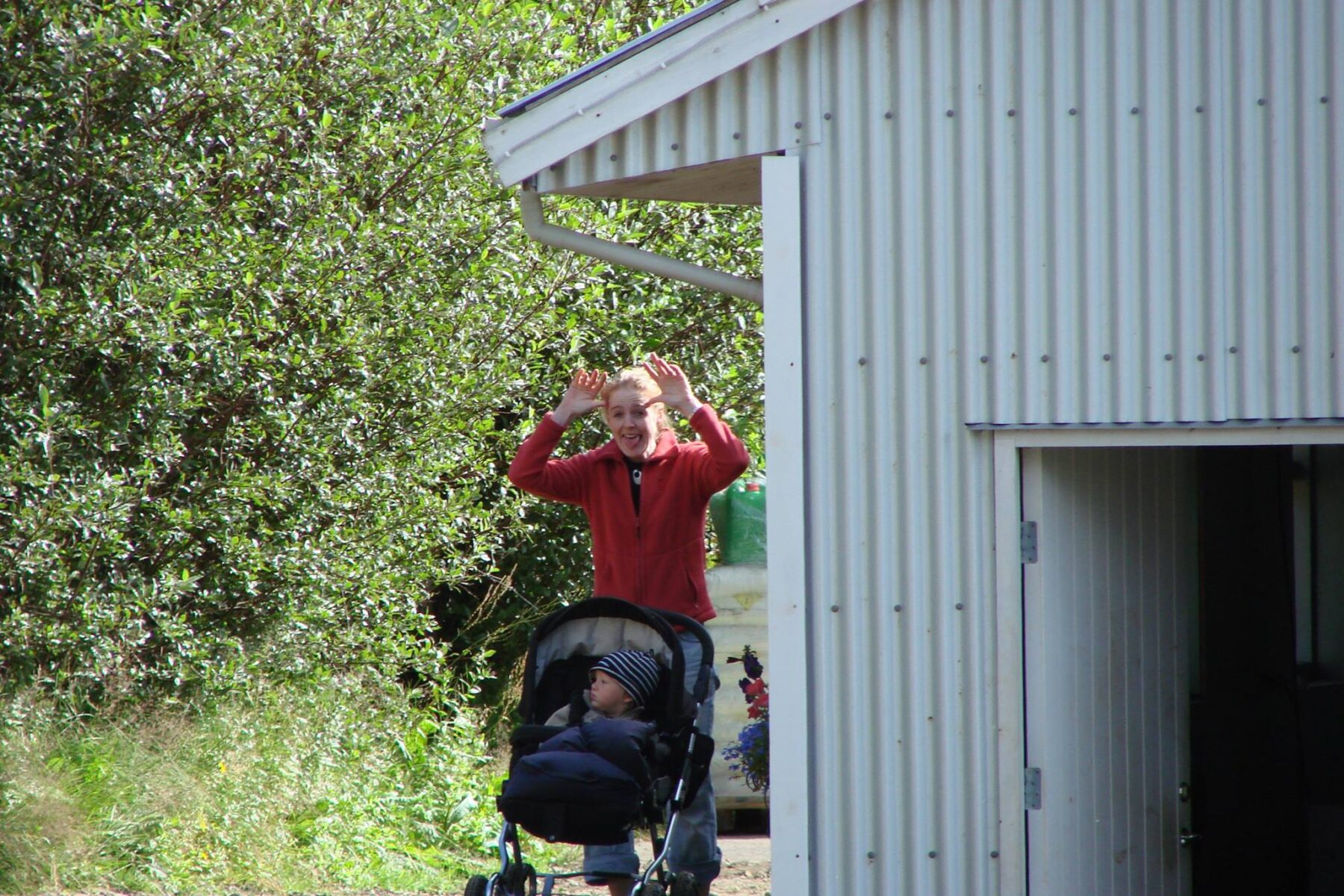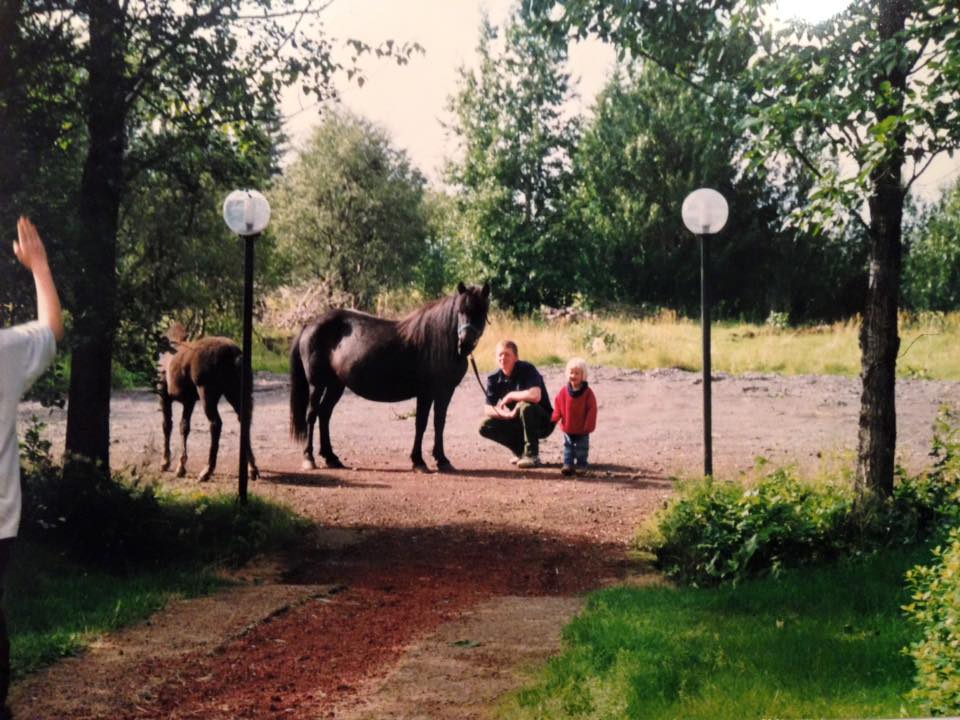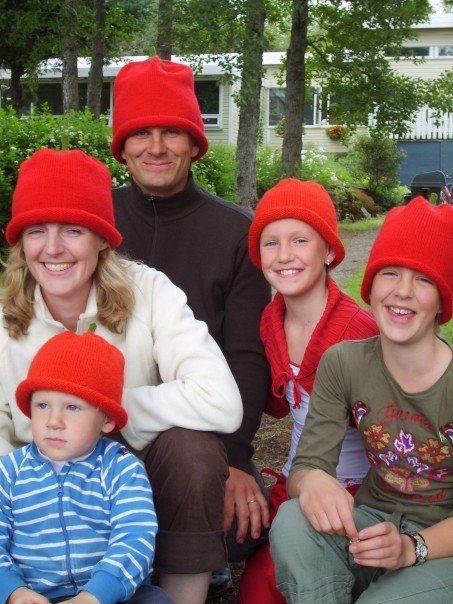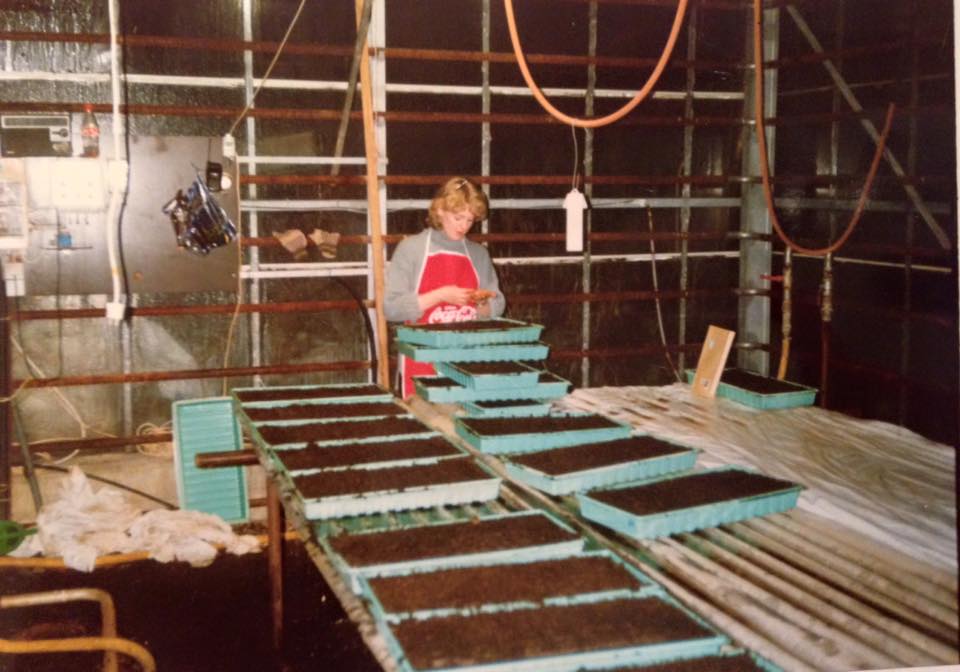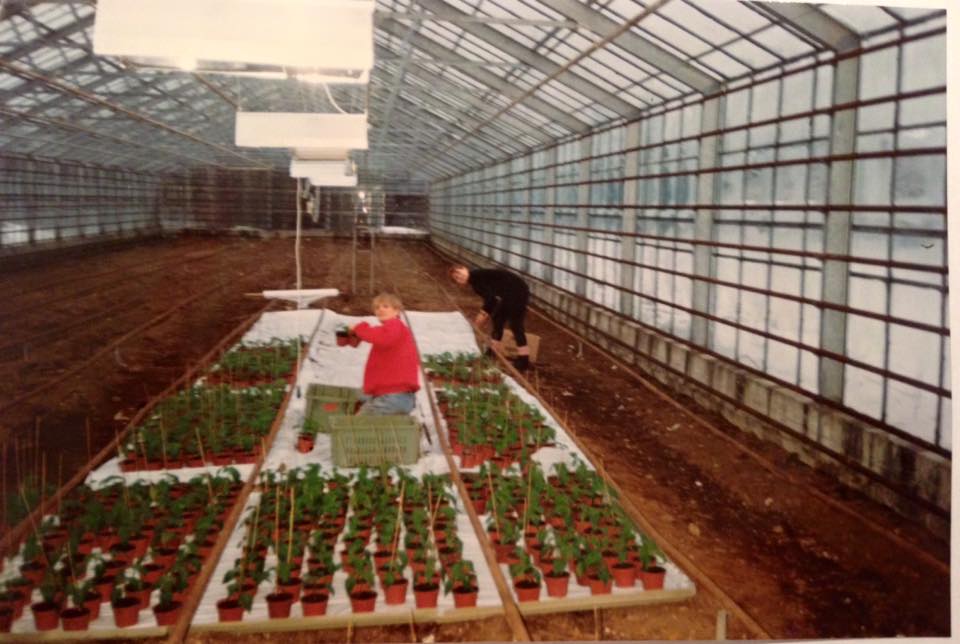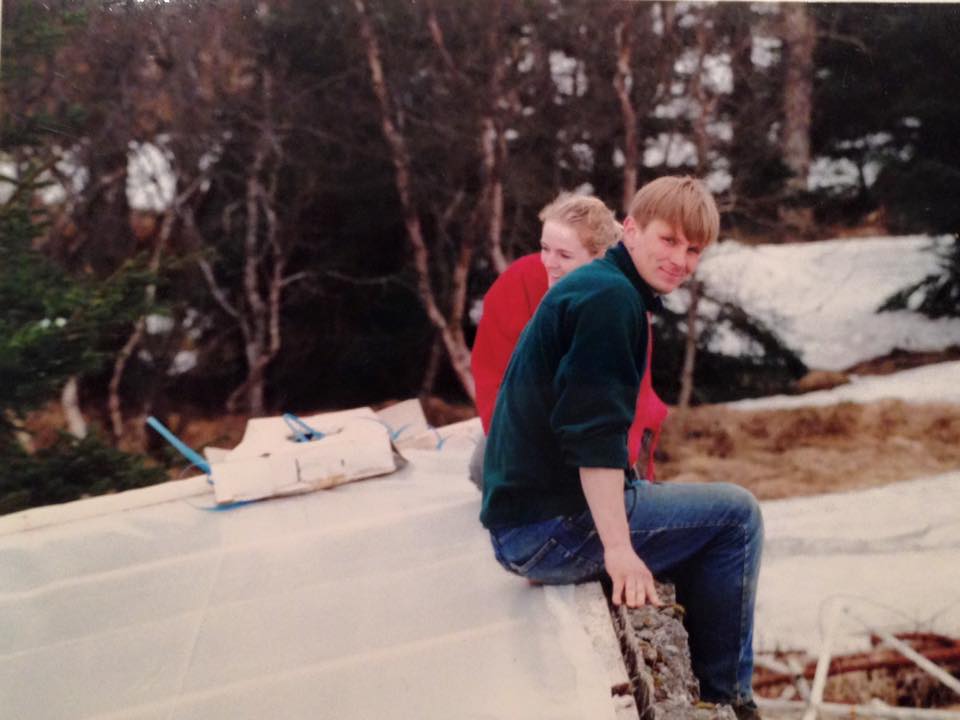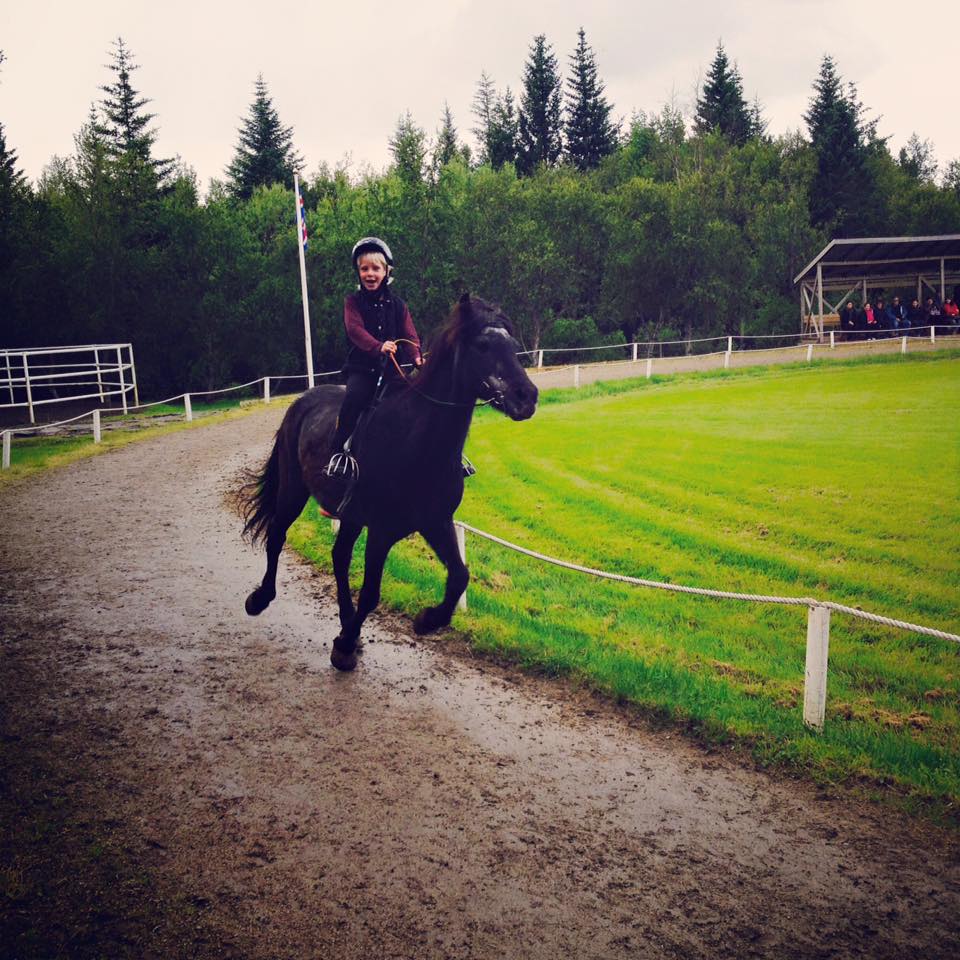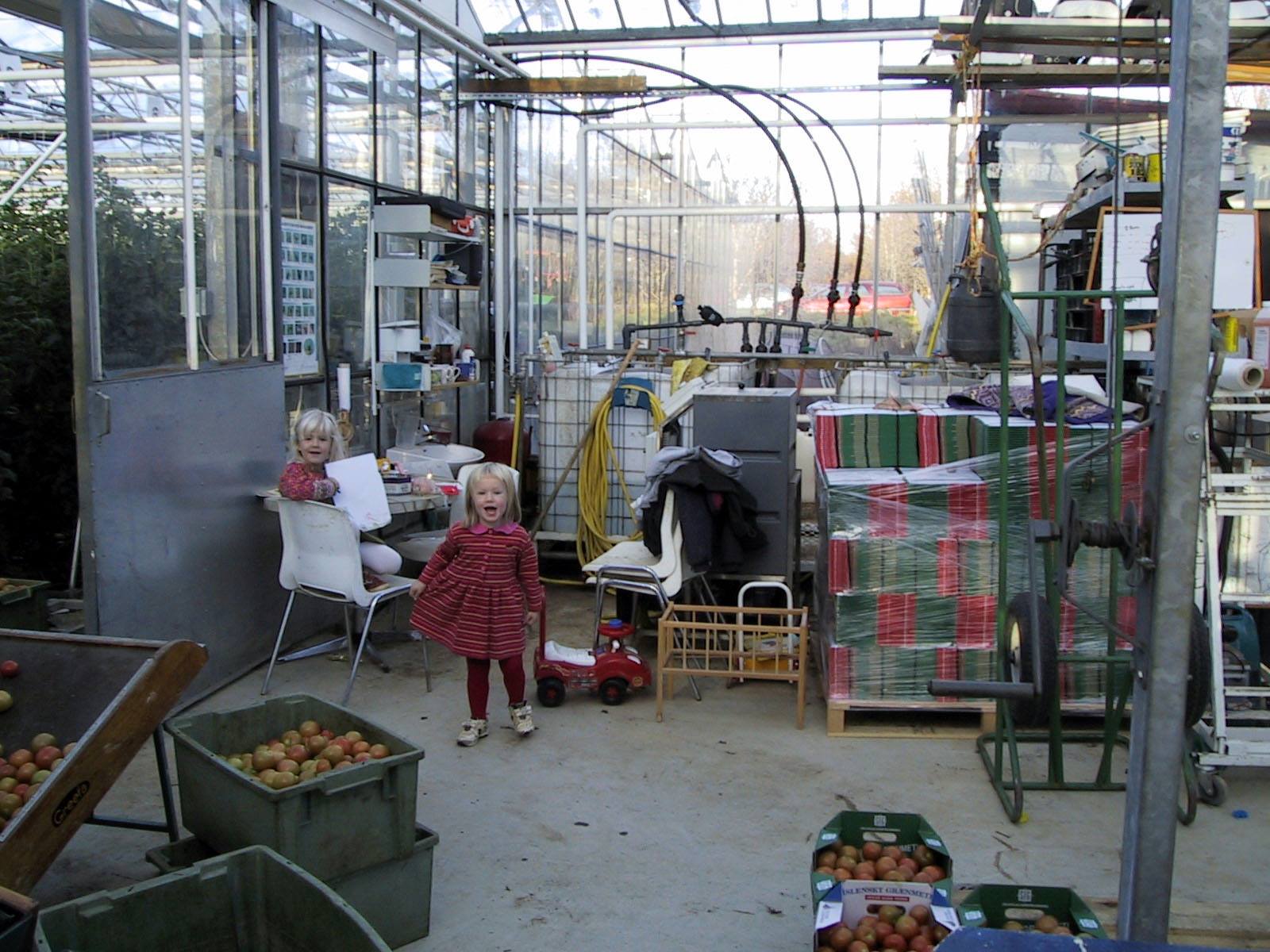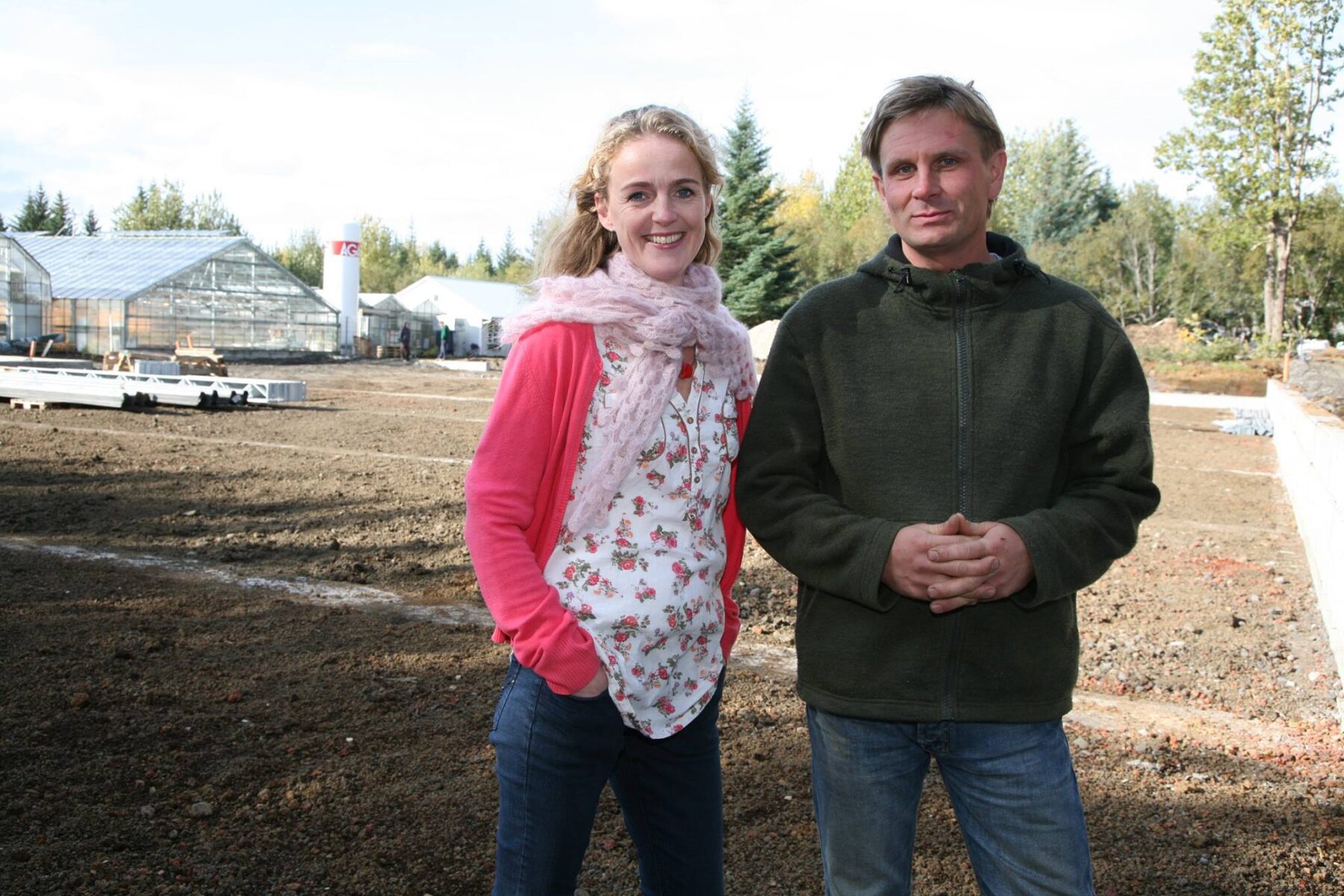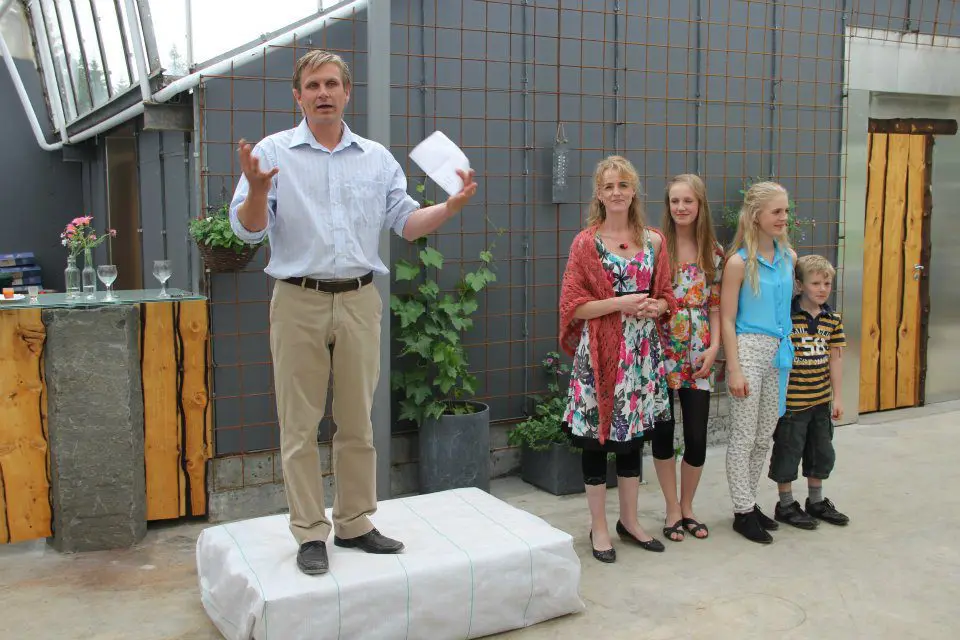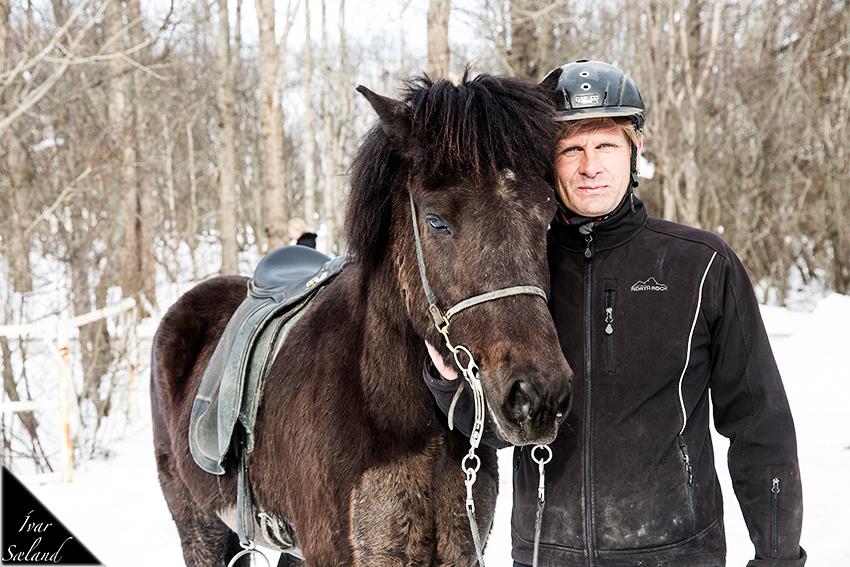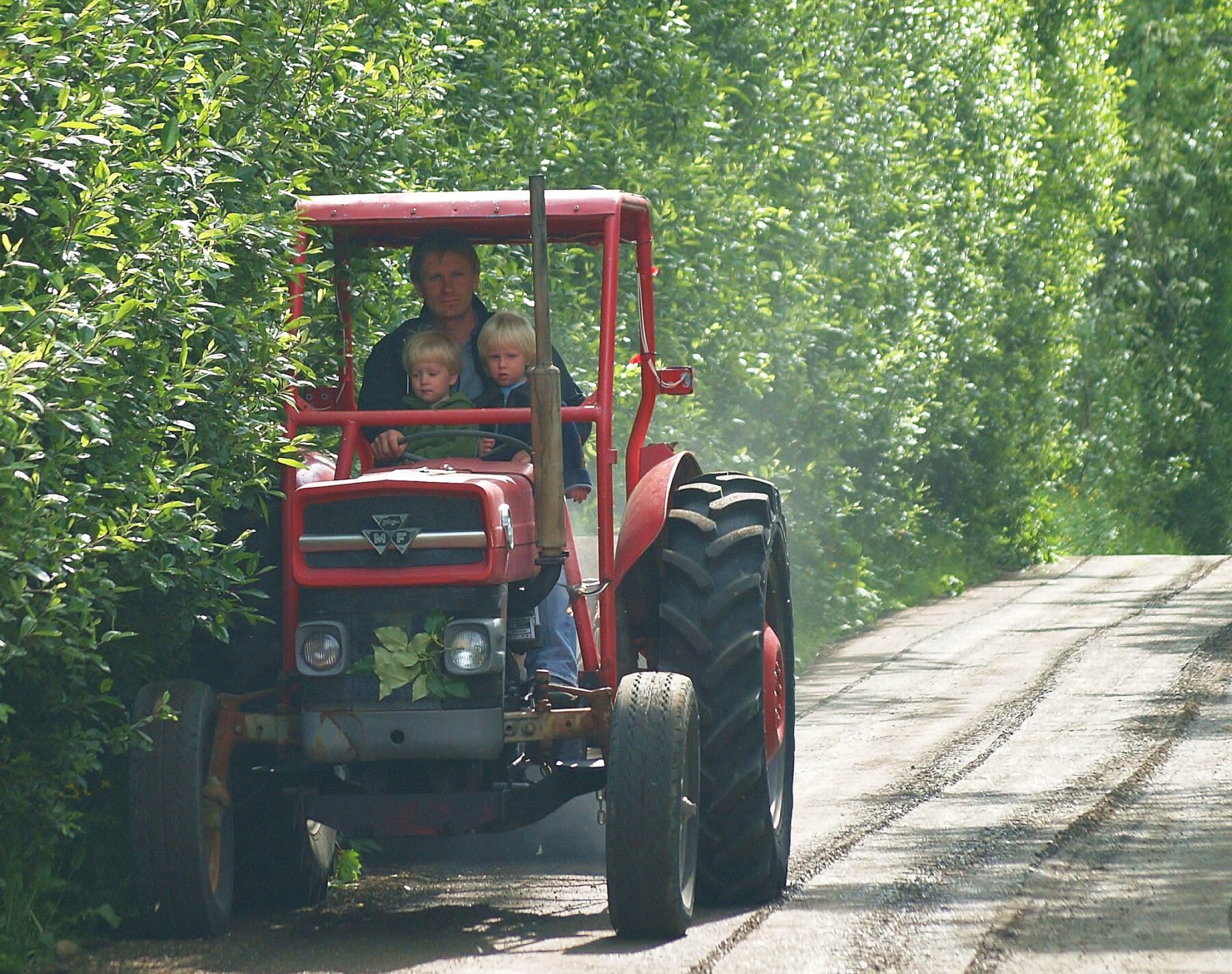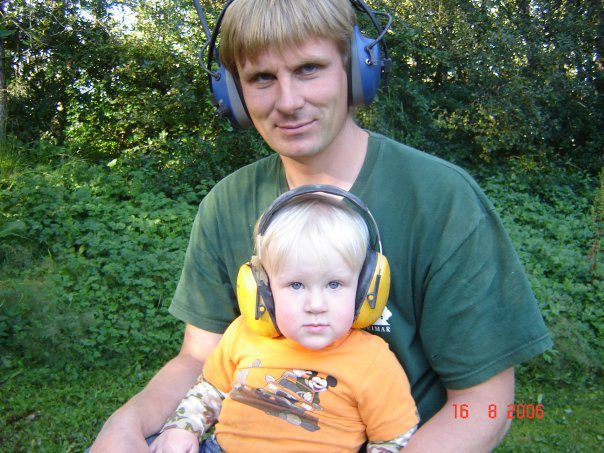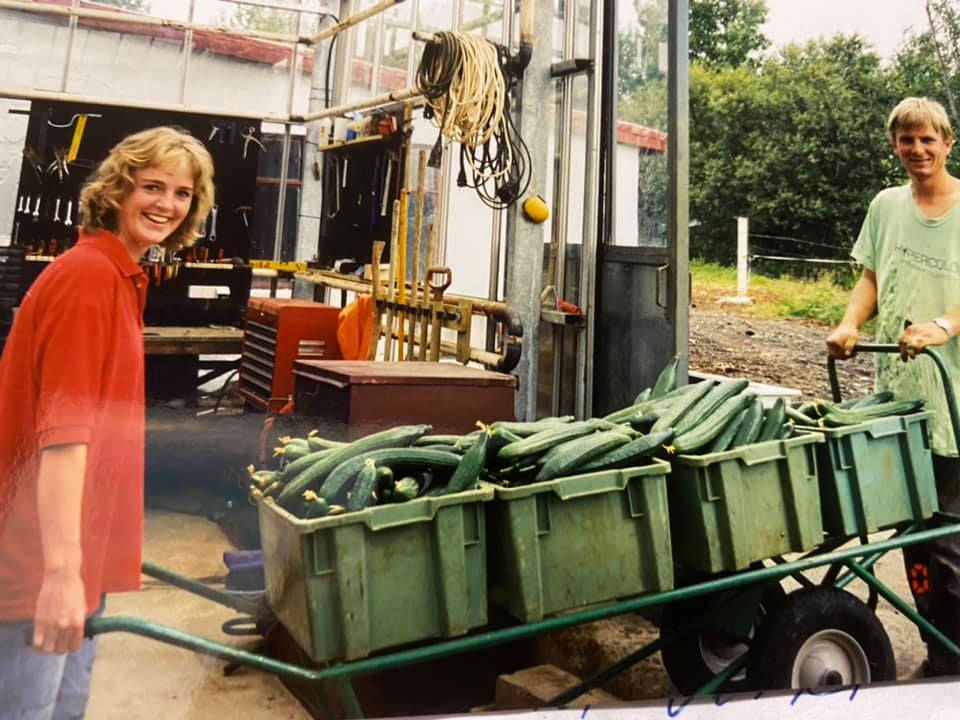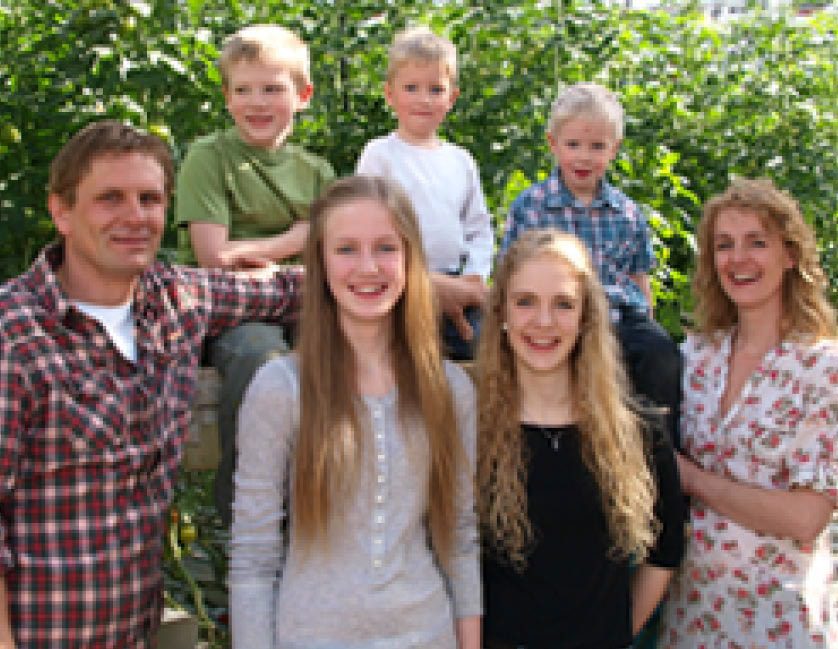

The family
Friðheimar is a family business run by the married couple Knútur and Helena. They have five children: Dóróthea, Karítas, Matthías Jens, Tómas Ingi, and Arnaldur, who are all actively involved in the development of the company. Dóróthea and her husband, Kristján Geir, are also involved in the day-to-day operations, and they have a son named Jökull.

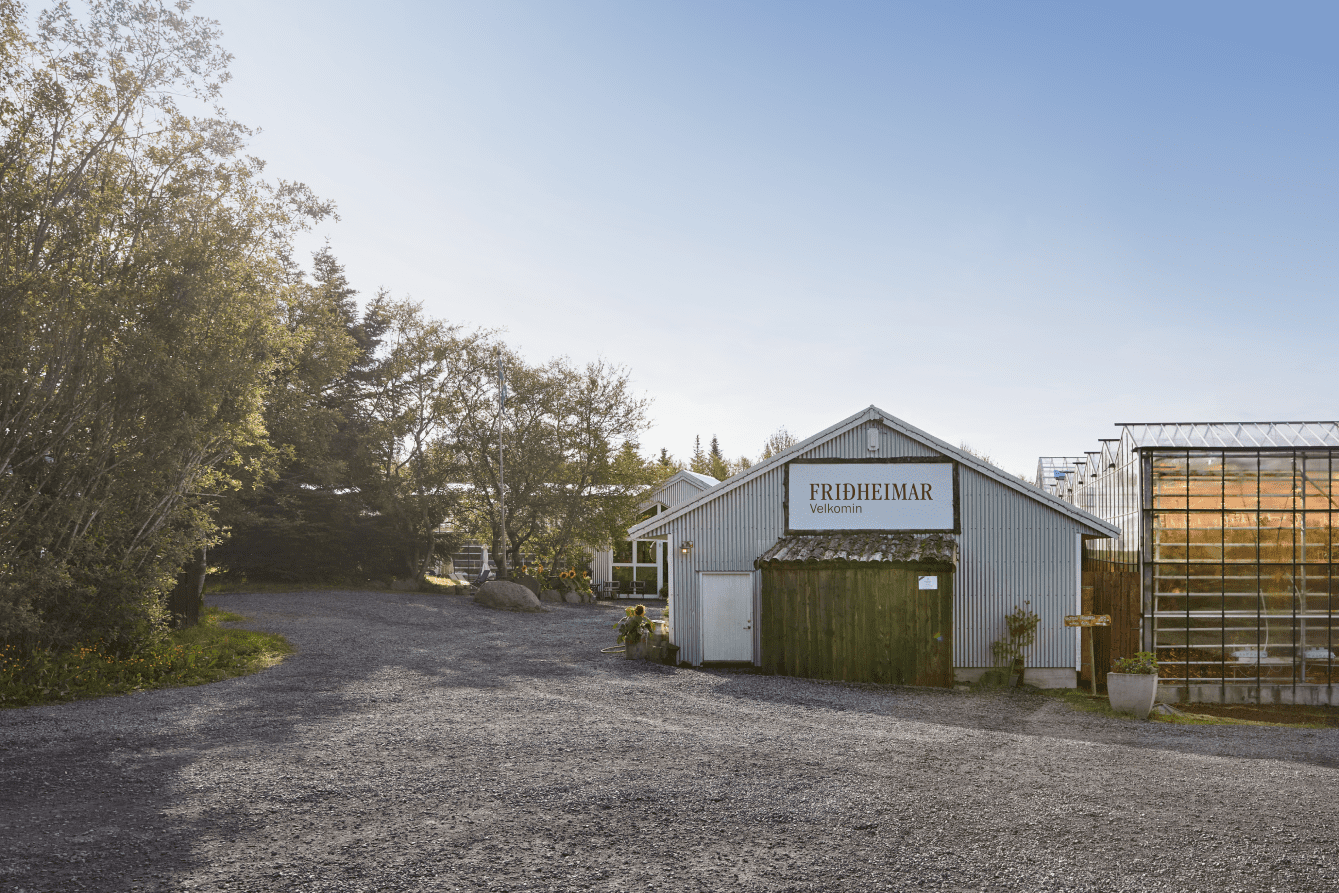
About us
At Friðheimar, we grow tomatoes all year round under artificial lighting in greenhouses, despite the long and dark winter.
We welcome visitors and show them how the tomatoes are grown, and then they can sit down next to the tomato plants and enjoy an excellent menu based on tomatoes. Our guests can take home delicious food souvenirs made from tomatoes and cucumbers. We also breed horses, put on a horse show, and offer visits to the stable for pre-booked groups.
We have always emphasized that Friðheimar is a family business where all our staff are welcome, valued, and part of the family.Helena Hermundardóttir
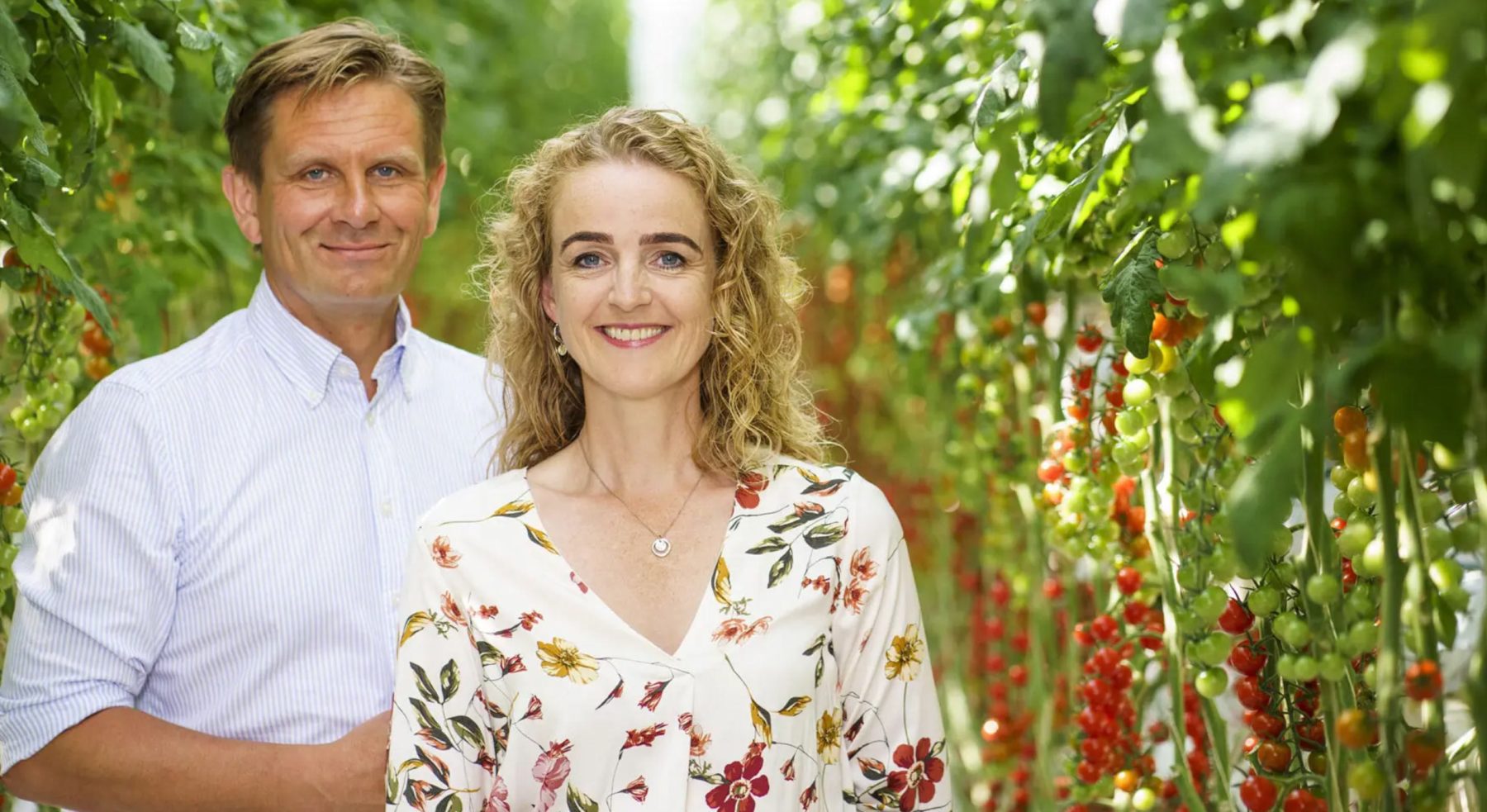

The company has grown rapidly, and the number of employees has gone from one in 1995, when Helena was the only employee, to more than 70 full-time employees.
• In 1995, Knútur and Helena bought Friðheimar, determined to combine their professions: horsemanship and gardening. At the time, there were two greenhouses and a large empty residence. Greenhouse farming began in Friðheimar in 1946, but no one had lived there for several years before Knútur and Helena took over. Years have passed since they started the buildup, and now everything is bustling with life.
• 1995–2001, they built 1174 sq m of greenhouses and older houses were renovated and used for cultivation. They spent these first years settling down.
• 2002–2006, they decided to grow tomatoes all year round, installed artificial lighting in the older houses, and built a new 1,000 sq m greenhouse with full lighting. These were also times of gathering much information and re-education.
• 2007–2013, it was time to develop a horse riding center and tourist service in Friðheimar. They built a stable for 20 horses with reception facilities, an outdoor showground with seats for 120 people, and launched a horse show for tourists. Soon after, visits were offered to the greenhouses, now enlarged by 60% with a salon among the plants.
• In 2013, the Little Tomato Shop, with food souvenirs for sale, was added to the salon, and in the fall of 2014, Friðheimar launched an online store where you can buy and have their goodies sent home.
• In 2016, we made an extraordinary operation on our oldest greenhouses. They were old-fashioned, built with seasonal and traditional cultivation in mind but not lighting cultivation, so the houses were a bit too low, and it was difficult to control the climate. We hired a Dutch contractor to raise the greenhouses by 1.5 meters. They were sawed apart and lifted with the roof glass in with jacks. With this operation, we modernized the oldest buildings, which have become ideal for year-round cultivation.
• In 2017, we built a new building, Jónshús, which accommodates a large drive-in and processing kitchen on the lower floor, an office and conference room, and facilities for tour guides and drivers on the upper floor.
• In 2017, we joined Vakinn, the tourism quality and environmental system.
• In 2018, we built a 450 sq m shed from Landstólpi, which houses a machine store, workshop, and warehouse, and there is also a hobby room and gym for us and our terrific staff.
• In 2019, we built more staff houses, row houses with four apartments, and therefore have about 20 apartments in the village that we rent at a reasonable price to our employees.
• 2020 was a complicated year due to COVID-19, but we used it as an opportunity and built a 5,600 sq m greenhouse, packaging, product reception, and nursery. With that, we more than doubled the production of tomatoes and completely changed all working conditions for the better. It was a huge step, allowing us to grow much higher volumes in modern greenhouses, taller than our older buildings. To have land for constructing this new building, we bought the horticulture station next to us, Birkilundur, where there are three 400 sq m old greenhouses that we now use for traditional cultivation without lighting for tomatoes.
• In 2021, we added more staff houses, as the number of employees had grown to about 60 year-round employees. We finished putting the new greenhouses into use and reorganizing indoors to spaces that were freed up, such as moving the canteen, dressing room, etc.
• In 2022, we replaced the old lamps in the first greenhouse that we put in year-round lighting 20 years ago. The new lamps use the electricity better and give us more light per Kw. That same year, we built a covered round paddock next to the stables, an arena that comes in handy for training the horses throughout the year.
• 2023 – the big project this year was to decorate one of the old greenhouses in Birkilundur as a wine bar/studio, which we opened at the beginning of summer. This new local offers great and fun possibilities for growth.
• And on we go …
Gallery
Here is a collection of pictures from us over time.
Our staff
Our staff are the company’s heart and have built this adventure with us. Employees are actively involved in the company’s development and significantly influence which projects we undertake and in which direction we aim.
We have employees of various nationalities. There is great value in that; we can, for example, offer many of our guests information in their language.


The Horticulturists' Sales Company (SFG)
We belong to a group of horticultural farmers in Iceland who own the Horticulturists’ Sale Company (SFG), which sells and distributes horticultural products, including our tomatoes. We are pleased that we at SFG have chosen to carbon-neutralize transportation from horticultural farms into stores through an agreement with Kolviður (Iceland Carbon Fund), thereby contributing to binding soil and reducing soil erosion in Iceland and carbon in the air.
The SFG was founded in 1940 and is owned entirely by horticultural farmers. The company establishes direct contact between farmers and consumers. Our farmers get to focus on what they do best while the SFG takes care of distribution, packaging, labeling, transportation, and promotion.
SFG has built an efficient system to control quality, promotion, and distribution. This effective marketing strategy delivers 90% of the product’s wholesale price to horticultural farmers.
The SFG receives harvest from farmers and delivers it fresh and juicy to consumers through an extensive distribution system to stores or through its services to commercial kitchens, canteens, and salad bars. This way, the company has given farmers better utilization of products and contributed to the fight against food waste.
SFG owns two companies; one called Í einum grænum, with the purpose of using second class vegetables for various products and therefore minimizing food waste, and the other one called Matartíminn which focuses on creating healthy food with Icelandic vegetables and local products for kindergartens and schools in Iceland.


